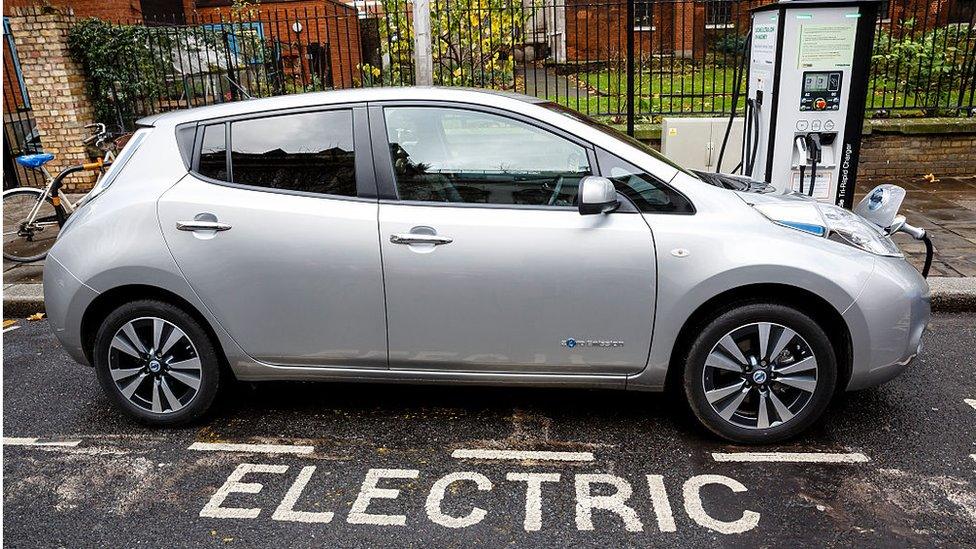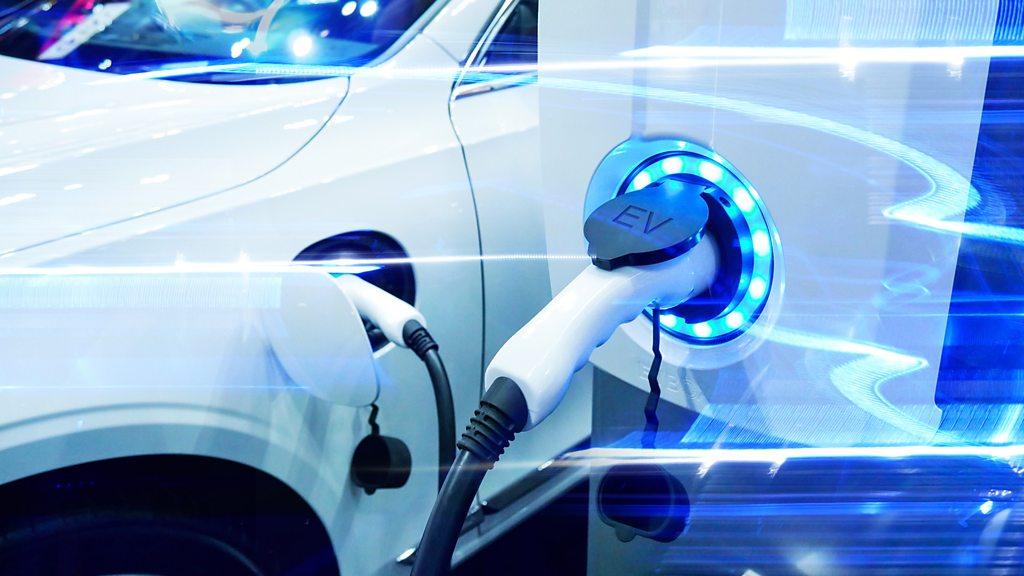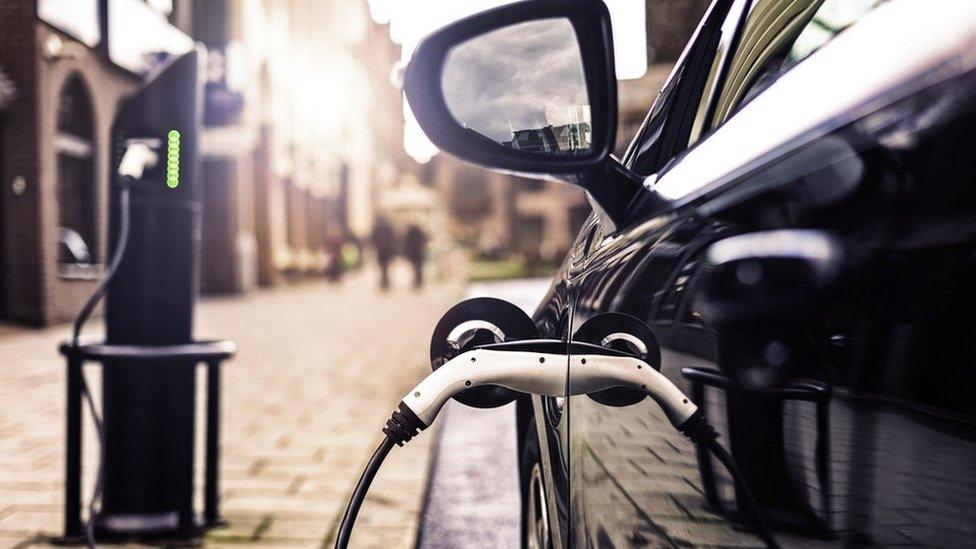Electric cars: Cardiff 'needs 9,900 more charging points by 2025'
- Published

A ban on sales of diesel or petrol vehicles by 2030 is expected to fuel a surge in electric cars
Cardiff needs an extra 9,900 charging points for electric cars by 2025 to cope with an increase in demand, a council report has said.
The city currently has fewer than 100 charging points and needs about 10,000 in four years.
The report detailing the council's push to get the city carbon neutral by 2030 suggested nine out of 10 cars could be electric by 2035.
The council said it was trying to find "the right balance".
According to the Local Democracy Reporting Service, the call for thousands of extra charging points is just one part of a massive shift in how the city's transport will change over the coming decade.
Other major shifts to how people get around the city include car clubs similar to the Nextbike bike-sharing scheme, potential pilots of electric scooter-sharing schemes, hydrogen-fuelled vehicles and charging drivers from outside of Cardiff £2 a day to use the roads.
About 40% of carbon emissions in Cardiff come from transport - in 2018, road transport in the city emitted 645 kilotonnes of carbon dioxide, a major contributor to climate change.
To reduce carbon emissions, sales of vehicles fuelled only by diesel or petrol will be banned in 2030, which is expected to fuel a surge in the number of electric vehicles.
The city will need 40,000 charging points by 2030, according to the Welsh government, assuming nine out of 10 vehicles will be electric in 2035.

Nine out of 10 vehicles could be electric by 2035, so more charging points are needed, the report said
Council leader Huw Thomas said: "I think this technology has some way to go in maturing.
"The idea of wholly shifting our car usage to a system charged via domestic household electricity actually has significant implications for climate change, in terms of generating that electricity. So there is that degree of impracticality."
The challenges around the shift to electric vehicles were discussed by the council's environmental scrutiny committee on Tuesday.
Councillors were given an embargoed report of the One Planet strategy, the action plan to get Cardiff to net zero by 2030.
The report includes the Welsh government's prediction on how many charging points will be needed, the projects the council is already working on to cut carbon emissions and the responses to a huge public consultation held over the winter about the net zero plan.
Andrew Gregory, the council's director of planning, transport and environment, said: "We're moving as quickly as possible. There's a wide range of proposals coming forward for fast chargers, chargers in residential areas, new technologies in terms of how that is provided through specific bespoke charging points or through existing infrastructure like bollards.
"But we don't want to go ahead of the technology and make some presumptions about how this is going to be in two to three years, in terms of the type of connections.
"Other cities have done that and are now finding they have got a load of redundant infrastructure that they have put in. So [we're] trying to get the right balance."

EURO SINGALONG: Take part in our virtual choir of Welsh football fans
ELIS JAMES' FEAST OF FOOTBALL: Elis, Danny and Iwan react to this week's football news

- Published11 May 2021

- Published3 January 2020

- Published11 February 2020

- Published9 February 2021
